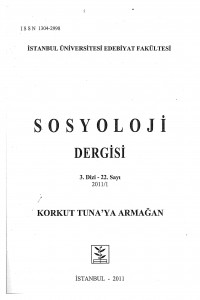Abstract
This paper aims to discuss the emergence of the traditions of classification of sciences in Islam. It is argued that these traditions were mainly the result of the problematic relationship between reason and revelation and religion and philosophy, and were based on two theories. One is the theory of prophecy (nubuwwah), developed by al-Farabi, which explains the revelation as an expression of intellectual knowledge in sensible forms. The most systematic application of this theory is found in Irshâd al-qâsid by Ibn al-Akfânî. The other theory, which is developed by various Muslim scholars of traditional Islamic disciplines (kalam-fiqh-tasawwuf, etc.), accepts the revelation as the absolute expression of the truth. This second theory finds its most developed application in Miftâh al-sa'âdah by Tashkopruzâda
Keywords
Abstract
Details
| Primary Language | Turkish |
|---|---|
| Journal Section | Articles |
| Authors | |
| Publication Date | October 15, 2011 |
| Published in Issue | Year 2011 Volume: 3 Issue: 22 |

